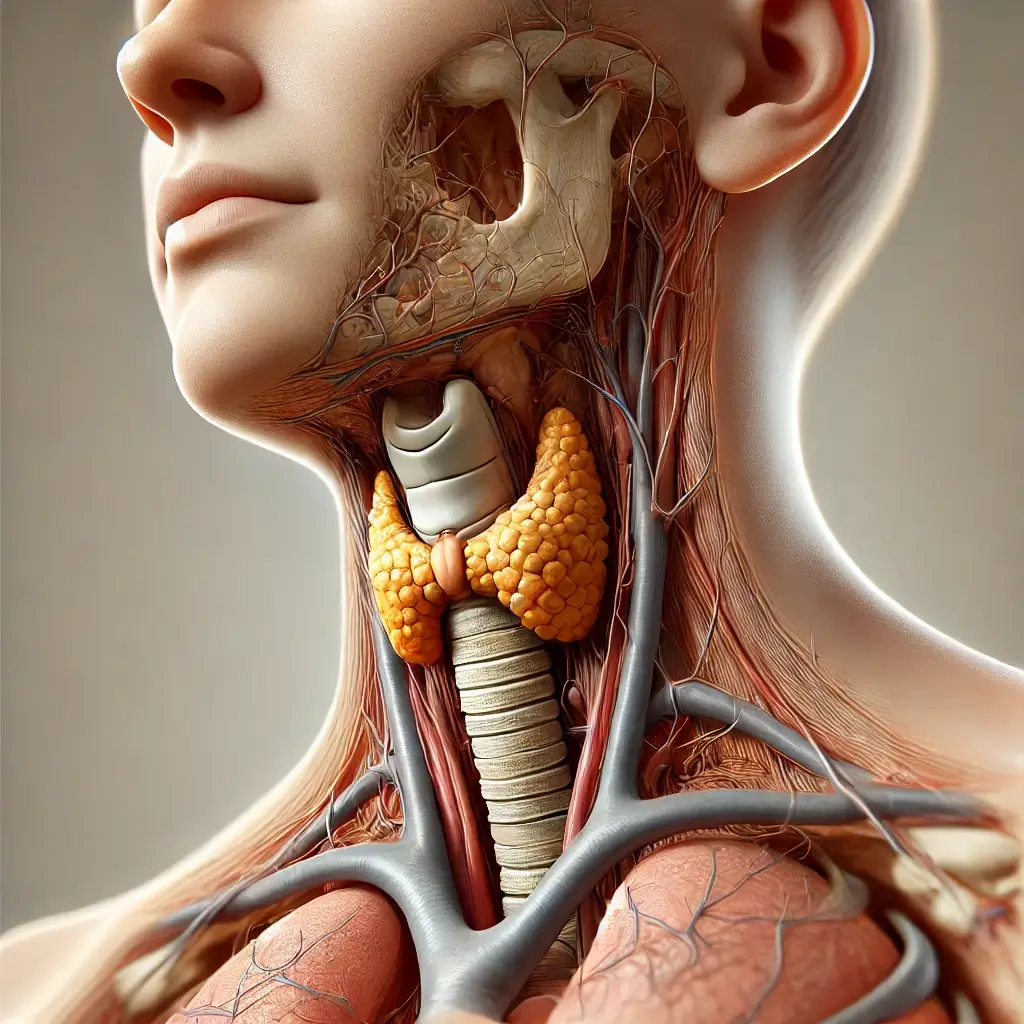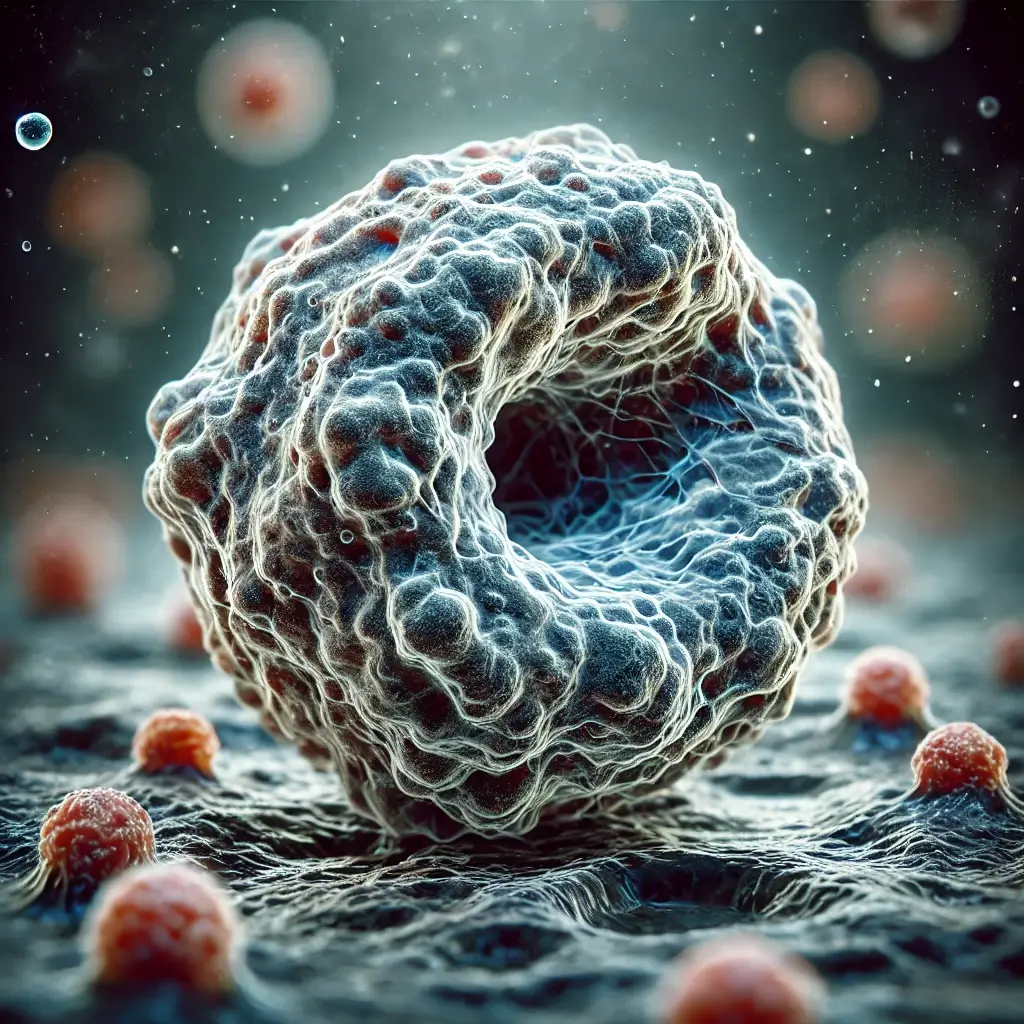Book Appointment Now
Understanding Neck Cancer

Neck Cancer Guide
Introduction
Neck cancer is a term often used to describe cancers that develop in the neck region, including the lymph nodes, thyroid gland and tissues surrounding the throat and larynx. While it is frequently grouped under head and neck cancers, neck cancer can arise from distinct areas and requires specialized attention. Early detection and targeted treatments have improved outcomes for many patients, but awareness of symptoms and risk factors remains crucial.
Statistics
Neck cancers contribute significantly to global cancer cases, with thyroid cancer being the most common type in this region. In the United States, thyroid cancer alone accounts for nearly 43,800 new cases annually. The five-year survival rate for thyroid cancer exceeds 98% for early-stage detection, while cancers affecting lymph nodes or other tissues may have more variable outcomes depending on their origin and stage.
Medical Illustrations
Microscopic view of a cancerous cell from neck cancer:

Medical illustration of immunotherapy and targeted therapy for cancer treatment:

Risk Factors and Prevention
a. Known Risk Factors
Several factors increase the risk of developing neck cancer, varying by cancer type:
- Tobacco and Alcohol Use: Both are significant risk factors for cancers in the throat and larynx.
- Radiation Exposure: Prior radiation treatments or environmental radiation exposure increase thyroid cancer risk.
- Human Papillomavirus (HPV): A major cause of oropharyngeal cancers in younger individuals.
- Family History: Genetic predispositions, especially in thyroid cancer, elevate risk.
- Occupational Hazards: Exposure to certain industrial chemicals can heighten risk.
b. Prevention
- Avoid tobacco products and limit alcohol consumption.
- Use protective measures to reduce occupational exposure to harmful substances.
- Get vaccinated against HPV and practice safe behaviors to prevent infection.
- Monitor thyroid health if you have a family history of thyroid disorders.
Screening
Symptoms and Early Warning Signs
Symptoms of neck cancer can vary based on the location and type of cancer. Common signs include:
- Swelling or lump in the neck, especially in the thyroid or lymph nodes
- Persistent sore throat or hoarseness
- Difficulty swallowing or breathing
- Unexplained weight loss
- Pain or stiffness in the neck
- Persistent cough or voice changes
- Enlarged lymph nodes without infection
If these symptoms persist for more than two weeks, seek medical evaluation promptly.
Diagnosis
Neck cancers are diagnosed through a combination of clinical evaluations and diagnostic tools:
- Physical Examination: A thorough neck examination to identify lumps or abnormalities.
- Imaging Tests: Ultrasounds, CT scans, MRIs and PET scans provide detailed images.
- Fine Needle Aspiration (FNA) Biopsy: Often used for thyroid nodules or lymph nodes to confirm malignancy.
- Blood Tests: Assess thyroid function or tumor markers specific to certain cancers.
- Endoscopy: For cancers in the throat or larynx, this allows direct visualization.
Stages
Types of Treatment
Overview of Treatment Modalities
Treatment for neck cancer depends on the specific type, stage and patient health.
Common approaches include:
- Surgery:
- Thyroidectomy: Removal of part or all of the thyroid gland for thyroid cancer.
- Lymph Node Dissection: Removes cancer-affected lymph nodes.
- Radiation Therapy: Frequently used post-surgery or as a primary treatment for inoperable cancers.
- Chemotherapy: Treats cancers that have spread beyond the neck region.
- Targeted Therapy: Used for cancers with specific genetic mutations or pathways.
- Immunotherapy: Emerging treatments aimed at boosting the immune system to fight advanced cancers.
Comparing Treatments
| Treatment | Mechanism | Side Effects | Efficacy (Survival Rate) | Study/Trial |
|---|---|---|---|---|
| Surgery | Removes tumor | Pain, infection | 95% 5-year survival for early-stage thyroid cancer | Smith et al., 2022 |
| Radiation Therapy | Shrinks or eliminates tumors | Fatigue, skin burns | 70% 5-year survival for localized laryngeal cancer | Green et al., 2021 |
| Chemotherapy | Inhibits cell division | Nausea, hair loss | 50% 5-year survival for advanced cases | Lee et al., 2020 |
| Targeted Therapy | Blocks cancer growth pathways | Diarrhea, fatigue | 65% 5-year survival for specific mutations | Carter et al., 2023 |
| Immunotherapy | Enhances immune response | Rash, flu-like symptoms | 55% 5-year survival for advanced cancers | Taylor et al., 2023 |
Living with Neck Cancer
Coping with neck cancer involves addressing both physical and emotional challenges. Recommendations include:
- Nutritional Support: Consult a dietitian for meal plans tailored to post-surgery or treatment needs.
- Physical Therapy: Helps restore neck mobility and strength after surgery or radiation.
- Speech Therapy: Beneficial for those experiencing voice changes or swallowing difficulties.
- Mental Health Care: Seek counseling or support groups for emotional well-being.
- Regular Follow-Ups: Essential to monitor recurrence or manage long-term side effects.
Additional Resources
Key Takeaways
- Neck cancer encompasses various cancers, including thyroid, lymph node and throat cancers.
- Symptoms like lumps, hoarseness and difficulty swallowing warrant prompt medical evaluation.
- Early detection and treatment lead to significantly better outcomes.
- Comprehensive care includes surgery, radiation and advanced therapies.
- Supportive care is vital for improving quality of life and recovery.
Final Recommendations
- Be proactive about routine checkups and consult a doctor for persistent symptoms.
- Adopt a healthy lifestyle, including smoking cessation and balanced nutrition.
- Engage with a specialized care team for individualized treatment plans.
Disclaimer
The information provided in this article is intended for general informational purposes only and should not be construed as medical advice. While every effort has been made to ensure the accuracy of the information presented, it is not a substitute for professional medical guidance, diagnosis, or treatment. Always consult a qualified healthcare provider with any questions you may have regarding a medical condition, including Neck Cancer. Do not disregard or delay seeking professional medical advice based on information found in this article. The authors and publishers are not responsible for any consequences resulting from the use of the information provided.
